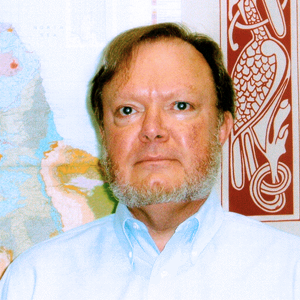
Research Interests
On a very general level, my work in the field of paleontology is concentrated on the analysis of ancient ecosystems, and the evolution of life through time within this ecological context. For several years my research has involved both the empirical analysis of Late Devonian marine ecosystems, and the theoretical consideration of the ecology of multispecies evolution and extinction patterns. More recently I have been involved in testing various hypotheses of mass extinction: the ecology of massive ecosystem collapse. These hypotheses have included the hypothesis that global ecosystem collapse can be triggered by extraterrestrial causes (chiefly, asteroidal impact).
A second active field of my research concerns the analysis of the evolution and adaptive significance of organic form in nature using the analytic techniques of “theoretical morphology.” In theoretical morphology, the adaptive landscape concept is put into actual practice by creating hyperdimensional theoretical morphospaces that contain the spectrum of both real and nonexistent animal and plant morphologies. Within this geometric continuum of possible morphologies we pose the question: “why has nature produced these morphologies and not those other, entirely possible but nevertheless nonexistent, morphologies?”, an analytic technique that allows us to unravel why life has evolved the way that it has.
The figure shows a hypothetical adaptive landscape of morphologic combinations (x-y axes) versus fitness or the degree of adaptation (z-axis). Topographic highs represent adaptive morphologies that function well in natural environments (and therefore are selected for), and topographic lows represent unadaptive morphologies that function poorly in natural environments (and therefore are selected against).
Education
- B.S., North Carolina State University
- M.S., University of North Carolina-Chapel Hill
- Ph.D., University of Rochester
Teaching
- Undergraduate: Dinosaurs, Paleontology
- Graduate: Evolutionary Paleoecology
